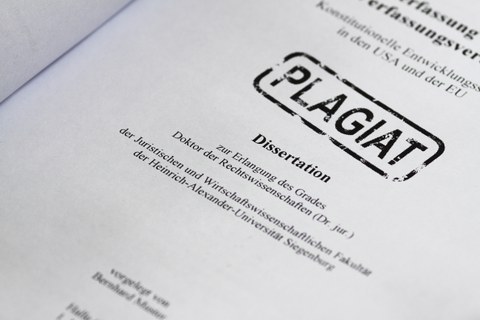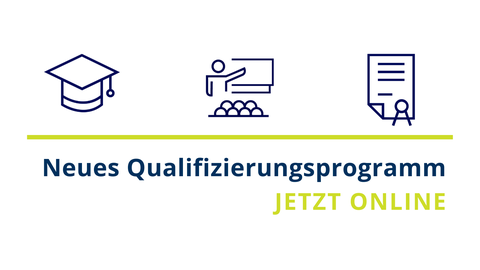Good Scientific Practice
Table of contents
Self-plagiarism, salami tactics, honorary authorship … Scientific misconduct is not always intentional.
However, with its claim to autonomy, science also has a special responsibility and duty of care. Therefore, it is essential to study the standards of Good Scientific Practice (GSP) closely.
The principles of good scientific practice require that all scientists work "lege artis" (i.e. according to the rules of art).
This includes, among other things:
- the correct handling of data,
- critical questioning of all results
- to avoid and prevent scientific misconduct,
- maintaining strict honesty with regard to one's own and third parties' contributions.
Possible violations of the rules of good scientific practice are manifold. For example, scientific misconduct occurs when deliberately or negligently
- Data or sources are invented or falsified,
- you compromise or interfere with the research activities of others,
- violate intellectual property (e.g., through plagiarism or theft of ideas),
- falsely accuse third parties of scientific misconduct,
- know about scientific falsification or misconduct and do nothing about it,
- neglecting the duty of supervision.
Good scientific practice at the TU Dresden
All TU Dresden members are obliged to follow the statutes safeguarding good scientific practice and to actively contribute to the prevention of scientific misconduct.
Scientific misconduct is not tolerated at TU Dresden. Suspected cases are investigated carefully and with respect to those involved. If suspicions are confirmed, appropriate measures will be taken.
The following website, Good Scientific Practice at TU Dresden, provides all information, as well as further guidelines and training courses.
TU Dresden has issued the Statutes for Ensuring Good Scientific Practice, Avoiding Scientific Misconduct, and Handling Violations.
All members and staff of TU Dresden are obliged to follow these statutes, to make them the basis of their scientific work and to actively contribute to the avoidance of scientific misconduct within their sphere of activity.
The ombudsperson is the contact person, advisor, and mediator in all cases of suspected scientific misconduct. If necessary, he or she will be supported by the Review Board for Scientific Misconduct.
Your report will be treated confidentially. Confidentiality serves to protect the whistleblower as well as the person suspected of misconduct.
The ombudsperson shall maintain a regular exchange with the liaison officers of the faculties, the Review Board for Scientific Misconduct, as well as the other advisory bodies of TU Dresden. Conflict cases that are not related to scientific misconduct can be forwarded confidentially to the responsible offices of TU Dresden (e.g., Personnel Representation Council, conflict mediator of the Graduate Academy, psychosocial counselling, etc.) with the consent of the informant.
If there is reasonable suspicion of academic misconduct in the view of the ombudsperson, this suspicion will be reviewed by the Investigative Committee or, in suspected cases where the misconduct relates to academic examinations (e.g. Bachelor's, Master's, Diploma examinations) or graduations (doctorates, habilitations), by the regular Examination Board provided for in the respective examination and graduation regulations.
Contact
In cases of suspected scientific misconduct, the Office for Good Scientific Practice supports the ombudsperson, the Investigative Committee, and the regular review boards.
The Office for Good Scientific Practice accepts reports of suspected misconduct confidentially and provides information on possible procedural steps. This shall not affect the right of direct recourse to the ombudsperson or the Investigative Committee.
In cases of suspected scientific misconduct, the Office for Good Scientific Practice offers to check final theses (e.g. Bachelor's, Master's, Diploma examinations) or graduations (doctorates, habilitations) for plagiarism using plagiarism detection software.
Contact
Each faculty appoints one female and one male scientist as a liaison officer for early-career researchers.
List of contact details of the faculty liaison officers (download) (in German only)
These liaison officers serve as contact persons that can be easily approached by early-career researchers (especially doctoral candidates). These contact persons can also mediate in problematic situations. If necessary, and only with the consent of the person seeking advice, the contact persons can pass the conflict case on to the ombudsperson.
This shall not affect the right of direct recourse to the ombudsperson.
Furthermore, certified contact persons are available in all five Schools, as well as at the cfaed, the CRTD as well as in the Graduate School DIGS-BB. They offer subject-specific GSP workshops for Master students and doctoral candidates.
List of contact details of all GSP contact persons and trainers (in German only)
In the course of the scientific process, a large amount of data is generated. This research data can be generated by both qualitative and quantitative research, e.g. through interviews, surveys, experiments or observations, and can exist in analog or digital form including text documents, spreadsheets, logbooks, questionnaires, audio and video recordings, samples, collections, database content or protocols.
Long-term archiving of research data is a prerequisite for the traceability of scientific results. In addition, the data obtained is of interest for possible subsequent use.
Guidelines on the handling of research data at TU Dresden (in German only)
For more detailed information, please visit the website of the Service Center Research Data.
The Center for Continuing Education (ZfW) offers regular workshops on The Rules of Good Scientific Practice in Everyday Research for TU Dresden professors.
On the following link, you can find the dates for workshops on GSP for professors.
Good Scientific Practice |Graduate Academy
Familiarize yourself with the basic principles of good scientific practice at an early stage!
The Graduate Academy supports you with a wide range of training and advisory services tailored to your needs.
Certificate Course for Doctoral Candidates | 3 Online Modules
As a doctoral candidate at TU Dresden, you are obliged to complete a training course on Good Scientific Practice (GSP) before submitting your dissertation. This is in accordance with the Statutes on safeguarding good scientific practice1 and the provisions of your faculty's doctoral regulations.
- The course consists of three consecutive modules with a total duration of approximately 4 hours.
- After completing all three modules, you will receive a certificate from the GA that you can submit to the doctoral office or upload to Promovendus.
- As an alternative to our modular certificate course, you can also attend the regular GSP (online) workshops in our qualification program.
- For more information, please take a look at the information on each module!
GSP-Certificate Course | Registration
Goethe University Frankfurt developed this one-hour online course for individual work, especially for doctoral candidates. It offers a brief introduction to the standards and principles of good scientific practice.
How does it work?
You're a doctoral candidate at TU Dresden, and you would like to complete the e-learning course. Please register via Opal!
Module 1 | Registrierung via Opal
Important
- Please make sure that your browser allows pop-up windows.
- If you have already completed the course on an earlier date, just upload your certificate to Promovendus.
- Please note that this tool was developed by Goethe University Frankfurt; therefore, Goethe University's data protection regulations apply to course participation.
The e-learning course "Good Scientific Practice at TU Dresden," developed by the Graduate Academy of TU Dresden, teaches doctoral candidates the specific guidelines, procedures, and support services related to good scientific practice. Participants also learn about ethical standards, documentation requirements, and institutional support structures.
How does it work?
- Have you completed the first e-learning module successfully?
- Then, please register for the second module of our certificate course via OPAL.
You will need a valid ZIH log-in.
Module 2 | Registration via Opal
Important note
- Please make sure that your browser allows pop-ups.
- After successful completion, please download your certificate of participation and upload it to Promovendus.
This 2-hour interactive online workshop for doctoral candidates addresses case studies on good scientific practice. Participants analyze hypothetical scenarios from everyday research, discuss the dilemmas presented in small groups, and work together to develop possible approaches. The interactive course promotes exchange and strengthens competence in dealing with ethical challenges in research.
Registration for Module 3 | Prerequisites
- Have you completed modules 1 and 2 successfully?
- Have you downloaded both certificates of participation?
- Have you been admitted as a doctoral candidate at your faculty by the doctoral committee?
Upload Certificates | How does it work?
- After registering for module 3, click on the "My Profile" tab in Promovendus and navigate to your course participant record (abbreviated with "V").
- In the left-hand menu under "Documents," click on "Add document" to upload the proof of successful participation in modules 1 and 2 as PDF files.
- These will be checked as an admission requirement before final confirmation of participation.
Module 3 | Dates
11.03.26 | 9:00 – 11:00 Uhr | Online (Deutsch) | Link zur Anmeldung 02.04.26 | 9:00 – 11:00 am | Online (English) | Link for Registration 20.04.26 | 9:00 – 11:00 Uhr | Online (Deutsch) | Link zur Anmeldung 23.04.26 | 9:00 – 11:00 am | Online (English) | Link for Registration 04.05.26 | 9:00 – 11:00 Uhr | Online (Deutsch) | Link zur Anmeldung 05.06.26 | 9:00 – 11:00 Uhr | Online (Deutsch) | Link zur Anmeldung 25.06.26 | 9:00 – 11:00 am | Online (English) | Link for Registration 15.07.26 | 9:00 – 11:00 Uhr | Online (Deutsch) | Link zur Anmeldung 24.08.26 | 9:00 – 11:00 am | Online (English) | Link for Registration 09.09.26 | 9:00 – 11:00 Uhr | Online (Deutsch) | Link zur Anmeldung
GSP Courses for Doctoral Candidates in Medicine
The Faculty of Medicine offers specific courses on “Good Scientific Practice” for doctoral candidates in medicine.
More information is available on the Faculty of Medicine website, where you can find the dates and information on registering for courses at the Faculty of Medicine.
Further offers of the Graduate Academy
Winter Semester 2025/2026
| Mo, 23.03. Tue, 24.03. |
Good Scientific Practice | Protecting Research Integrity for Postdocs |
On-site |
Furthermore, the Qualification program offers a broad spectrum of courses
that focus on different questions closely linked to this topic, such as:
- Visualization of Research Data
- Scientific Writing
- Research Data Management
Doctoral candidates in medicine
The Faculty of Medicine provides its own courses on the topic of “Good Scientific Practice” particularly for doctoral candidates in medicine.
More information on this can be found on the website of the faculty of medicine.
Find dates and registration for courses of Dresden university medicine here.
Workshops for university lecturers
Workshops on "Good Scientific Practice" for university lecturers
will be available on the website of the Center for Continuing Education (ZfW).
Introductory workshops for doctoral candidates
Certified course instructors: At the request of supervising university lecturers and subject to time availability, the Graduate Academy offers interdisciplinary introductory online workshops on Good Scientific Practice (GWP) for doctoral candidates.
- Participants: min. 8 / max. 16 doctoral candidates (and postdocs)
- Language: German or English
- Format: online
- Duration: 3.5 hours
Please note:
-
Membership of the participants in the GA/Postdoc Center is a prerequisite
-
The successful implementation of this depends on the availability and capacity of the GA trainers. While we make every effort, we cannot always guarantee it within a specific timeframe.
Are you interested?
In order to offer you the best support and ensure effective planning, we kindly ask for the following information from you:
- Preferred date
- Number of participants
- Workshop language (German/English)
Doctoral candidates & postdocs with questions regarding "Good Scientific Practice" can also make individual appointments with specifically qualified advisors at the Graduate Academy.
Would you like to book an appointment?
Please use our GA contact form.
TU Dresden
The e-learning “Export Control in Science” (modules 1 to 3) is available in OPAL for all employees of TU Dresden:
German: https://bildungsportal.sachsen.de/opal/auth/RepositoryEntry/45092896771 English: https://bildungsportal.sachsen.de/opal/auth/RepositoryEntry/45448036355
Deutsche Forschungsgemeinschaft (DFG)
Online Portal "Research Integrity"
Guidelines for Safeguarding Good Research Practice. Code of Conduct
Bundesministerium für Bildung und Forschung (BMBF)
Urheberrecht in der Wissenschaft. Ein Überblick (in German only)
Copyright in Academic Work - An overview
Ombuds Committee for Research Integrity in Germany (OWID)
International Codes of Conduct and Research Integrity Reports
FAQs on "Artificial Intelligence and Research Integrity"
Network against Abuse of Power in Science (MaWi)
Sächsische Universitäts- und Landesbibliothek (SLUB)
SLUB: Writing and Citation
Zitierleitfaden der SLUB (in German only)
Game-based learning | Gamification on academic integrity
Dilemma Game| Erasmus University Rotterdam
Seneca's Integrity Matters | University of Waterloo
Jeopardy on Academic Integrity | Jeopardy Labs
Good Scientific Practice at TU Dresden
TU Dresden has issued the Statutes for Ensuring Good Scientific Practice, Avoiding Scientific Misconduct, and Handling Violations.
All members and staff of TU Dresden are obliged to follow these statutes, to make them the basis of their scientific work and to actively contribute to the avoidance of scientific misconduct within their sphere of activity.
The ombudsperson is the contact person, advisor, and mediator in all cases of suspected scientific misconduct. If necessary, he or she will be supported by the Review Board for Scientific Misconduct.
Your report will be treated confidentially. Confidentiality serves to protect the whistleblower as well as the person suspected of misconduct.
The ombudsperson shall maintain a regular exchange with the liaison officers of the faculties, the Review Board for Scientific Misconduct, as well as the other advisory bodies of TU Dresden. Conflict cases that are not related to scientific misconduct can be forwarded confidentially to the responsible offices of TU Dresden (e.g., Personnel Representation Council, conflict mediator of the Graduate Academy, psychosocial counselling, etc.) with the consent of the informant.
If there is reasonable suspicion of academic misconduct in the view of the ombudsperson, this suspicion will be reviewed by the Investigative Committee or, in suspected cases where the misconduct relates to academic examinations (e.g. Bachelor's, Master's, Diploma examinations) or graduations (doctorates, habilitations), by the regular Examination Board provided for in the respective examination and graduation regulations.
Contact
In cases of suspected scientific misconduct, the Office for Good Scientific Practice supports the ombudsperson, the Investigative Committee, and the regular review boards.
The Office for Good Scientific Practice accepts reports of suspected misconduct confidentially and provides information on possible procedural steps. This shall not affect the right of direct recourse to the ombudsperson or the Investigative Committee.
In cases of suspected scientific misconduct, the Office for Good Scientific Practice offers to check final theses (e.g. Bachelor's, Master's, Diploma examinations) or graduations (doctorates, habilitations) for plagiarism using plagiarism detection software.
Contact
Each faculty appoints one female and one male scientist as a liaison officer for early-career researchers.
List of contact details of the faculty liaison officers (download) (in German only)
These liaison officers serve as contact persons that can be easily approached by early-career researchers (especially doctoral candidates). These contact persons can also mediate in problematic situations. If necessary, and only with the consent of the person seeking advice, the contact persons can pass the conflict case on to the ombudsperson.
This shall not affect the right of direct recourse to the ombudsperson.
Furthermore, certified contact persons are available in all five Schools, as well as at the cfaed, the CRTD as well as in the Graduate School DIGS-BB. They offer subject-specific GSP workshops for Master students and doctoral candidates.
List of contact details of all GSP contact persons and trainers (in German only)
In the course of the scientific process, a large amount of data is generated. This research data can be generated by both qualitative and quantitative research, e.g. through interviews, surveys, experiments or observations, and can exist in analog or digital form including text documents, spreadsheets, logbooks, questionnaires, audio and video recordings, samples, collections, database content or protocols.
Long-term archiving of research data is a prerequisite for the traceability of scientific results. In addition, the data obtained is of interest for possible subsequent use.
Guidelines on the handling of research data at TU Dresden (in German only)
For more detailed information, please visit the website of the Service Center Research Data.
The Center for Continuing Education (ZfW) offers regular workshops on The Rules of Good Scientific Practice in Everyday Research for TU Dresden professors.
On the following link, you can find the dates for workshops on GSP for professors.
Footnotes
-
Compulsory events on GWP
In its statutes on safeguarding good scientific practice, preventing scientific misconduct, and dealing with violations, TUD has stipulated the following: "All scientific staff at TU Dresden and all doctoral students are obliged to complete at least one training course in digital form or one face-to-face course on the topic of 'good scientific practice.'" § 3 (3)



